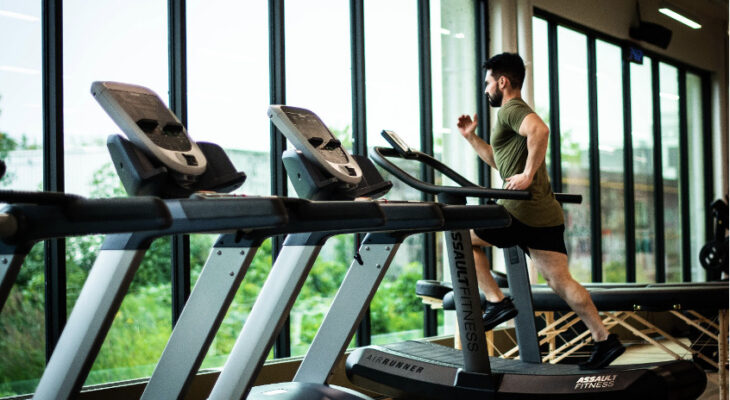So, you’ve figured out your workout routine and fine-tuned your diet. If you really want to achieve a higher, more badass level, it’s time to look into post-workout supplements.
Adding vitamins to your daily routine may help you achieve your goals of increasing strength. As well as losing weight, or improving overall performance. While there are no miracle pills (not yet, anyway), there are supplements that may help you fill in nutritional gaps and boost your exercises.
Keep on reading for our full breakdown of everything you need to know about taking supplements after a rigorous exercise session.
The Queen of Post-Workout Supplements: Carbohydrates
Carbohydrates are essential in every athlete’s pre-competition regimen, particularly if you’re training for more than an hour at a time.
Carbohydrates replenish your muscles and are stored in the form of glycogen. When glycogen stores are exhausted, tiredness and hitting the wall may occur.
Your body will utilize a larger proportion of carbs for fuel, especially while exercising at higher intensities.
Carbs are still important after you’ve pushed through the last few minutes of your sweat session. What do you gain if you deplete your glycogen reserves to the point that you’re easily fatigable and grumpy?
And, if you don’t refill, you’re more likely to be hurt.
Dose and Quantities
People who do a lot of hard, high-intensity exercise should aim for 3.2 to 4.5 grams of carbs each day.
They carry these grams per pound of body weight in particular.
Getting Enough Vitamin C
Vitamin C is best recognized as the supplement people take when they feel a common cold coming on. But, it also plays an important role in helping the body cope with stress. Whether it comes from the environment or through a rigorous exercise program.
Vitamin C is an antioxidant that aids in the management of metabolic stress, which exercise entails. When you put your body under a lot of stress, having substances in your system to assist you to cope with it may be beneficial.
Besides, vitamin C may decrease the risk of coughing or wheezing in athletes before and after exercise.
But, you’ll want to keep in mind to take no more than 2,000 mg per day is recommended. Adult males should consume at least 90 mg per day, whereas female adults should consume 75 mg per day.
Types of Vitamin B: B6 and B12
While severe vitamin B12 deficiency is uncommon, being somewhat deficient in the B vitamin complex, especially B6, is fairly prevalent. Though additional study is required. It’s conceivable that when the body is under stress, these nutrients are more readily depleted.
Vitamin B, according to the National Institutes of Health, aids in the formation of red blood cells and the acquisition or production of energy from food.
It may also aid in the reduction of inflammation as well as the regulation of mood and sleep habits. In other words, this vitamin aids in the fine-tuning of the vital physiological processes required for you to feel powerful throughout a workout or at any other time of day.
Adults should take a minimum of 2.4 micrograms of B12 each day. Adults should take at least 1.3 milligrams of vitamin B6 per day, but no more than 100 mg.
Tart Cherries: In Powder or Juice Form
Because it has comparable benefits to non-steroidal anti-inflammatories (NSAIDs), this stone fruit is rapidly becoming a popular post-performance superfood for endurance athletes.
Tart cherry has an immediate impact, similar to Ibuprofen, thus it may be used for pain, muscular injury, and it seems that it might be used as a possible chronic anti-inflammatory.
A tiny 2010 research found that marathon runners recovered faster after drinking a glass of sour cherry juice after the race.
Those who consumed the juice regained their power faster and had less inflammation after 26.2 than those who drank the placebo beverage.
Tart cherries contain phytochemicals that are very beneficial to one’s health. It’s worth noting that some other dark fruits, such as blueberry and grape juice, offer comparable characteristics.
Researchers throughout the nation are now working on vitamins and medicines generated from tart cherries.
Expect a slew of new goods to hit the market in the coming months that seek to exploit the superfood’s abilities, and you’ll be taking supplements with it as its main component.
How much do you actually need? Well, it’s still up in the air. In Keuhl’s research, runners who drank up to two 10-ounce bottles of tart cherry juice, or the equivalent of 45 tart cherries, recovered quicker after the marathon.
Tart cherry powder concentrations in post-workout supplements will vary.
BCAA Blend
Leucine, isoleucine, and valine are the three main amino acids that make up branched-chain amino acid (BCAA) mixes. Amino acids are used by the body to aid digestion, repair bodily tissue, and stimulate development, among other things.
The three amino acids that make up the BCAA mix are often found in protein sources such as meat and eggs. And, those are important for individuals seeking to grow muscle and repair damaged muscle tissue after hard exercises.
Leucine is the most significant essential amino acid in the mix. Particularly when it comes to repairing injured muscles.
It’s especially crucial when we’ve pounded a muscle with a lot of weight-room training, sprinting or running steps, or hammering for an endurance athlete.
BCAAs, which are also present in certain protein powders, assist the body to maintain strong signaling in order to repair a damaged muscle.
Athletes may take up to 20 grams of BCAA per day, but doses will vary based on their objectives.
Beta-Alanine for Performance
It may help with exercise performance and reliability during high-intensity workouts.
Hydrogen ions build up in your muscles during high-intensity activity, causing muscular exhaustion and slowing you down. By serving as a buffer for those ions, beta-alanine may be able to assist.
If you engage in high-intensity exercise, beta-alanine may be beneficial, since studies have shown that it may enhance performance.
Dosage Suggestions
Approximately 2 to 6 grams each day. For optimum absorption, take it after a meal. Also, be aware that tingling is a frequent side effect.
Take lower dosages throughout the day or use time-release capsules to minimize this adverse effect.
Creatine Monohydrate
Doesn’t the word ‘creatine seem strange and unfamiliar? And, if you’re like most people, you’ll think to yourself, “If it seems complicated, it must be rather artificial and dangerous to consume.”
That, however, could not be farther from the truth.
As strange as it may seem, your body produces creatine on a daily basis – you simply aren’t aware of it. When you eat meat (a big slab of excellent steak, for example), your liver and kidneys naturally generate creatine from the amino acids you consume.
But, first and foremost, why would your body produce creatine in the first place? That is an excellent question.
This is due to the fact that creatine is essential for your survival. It stores high-energy phosphate groups as phosphocreatine, which is subsequently converted to adenosine triphosphate (ATP), the body’s primary source of energy.
Here’s another way of looking at things.
Creatine aids in the production of energy in the body. That’s right, it’s that easy.
Okay, you now have a good understanding of what creatine is. Is creatine monohydrate a viable option? It’s just creatine with one molecule of water linked to it, as the name suggests.
Collagen for Overall Health
Collagen should be included in your post-workout supplements whether you’re searching for anti-aging or joint health.
Our bones, musculature, skin, and tendons all contain collagen.
In a way, collagen is what keeps our bodies together. Our collagen synthesis decreases as we get older, and as a consequence, we start to notice symptoms of aging, like wrinkles and crow’s feet.
It’s understandable that many believe collagen supplementation may help slow down the symptoms of aging and support the body’s natural capacity to heal joints, muscles, and tendons.
Despite the fact that this is one of the most talked-about supplements right now, you definitely don’t want to purchase it just yet. Collagen supplementation has yet to be shown in a scientific study to delay or reverse the effects of aging.
You’ll be healthier if you eat a well-balanced diet rich in lean meats, fruits, vegetables, whole grains, and healthy fats, exercise regularly, wear sunscreen, and don’t smoke.
Collagen is high in protein, so if you’re searching for a way to increase the protein content of your smoothies, soups, or other meals, a powdered collagen supplement may be an excellent option.
Taking Supplements After Exercising: Unlocked
You might have been exercising for decades on end, or you’re just implementing a new exercise routine. Regardless of where you lie on the spectrum, you’ll want to tailor your post-workout supplements intake to better fit your needs.
We hope that our guide has shed some light on your different variety of post-exercise supplements on the market, and what you’ll want to add or remove from your current intake.
And, if you liked reading our article, then you’ll love checking out our additional tips and strategies. All of those will be available to you in our health and fitness sections.





